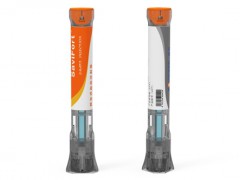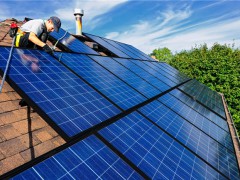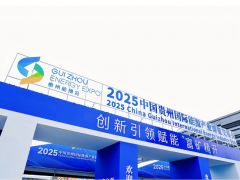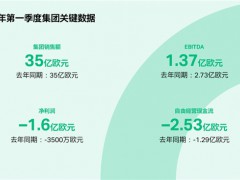據(jù)今日油價5月12日報道,4月,沙特阿拉伯的國有石油巨頭沙特阿美宣布出售其管道業(yè)務(wù)的少數(shù)股份——可能再出售1%的股份,并有意出售一些油田的股份。與此同時,作為鄰國、盟友和歐佩克成員國的阿聯(lián)酋宣布了將國有石油公司的鉆井業(yè)務(wù)進行上市,并推出了自己的石油期貨,以改變中東石油的面貌。
沙特阿美和Adnoc也都公開了它們提高石油生產(chǎn)能力的意圖,這讓人們感覺,沙特阿拉伯和阿聯(lián)酋都急于充分利用它們的石油資源。從表面上看,撤資和產(chǎn)能提升的原因非常明顯:所有海灣經(jīng)濟體都依賴其石油收入來維持運轉(zhuǎn),而它們都受到了去年疫情造成的需求破壞的沉重打擊。然而還有其他的原因——海灣經(jīng)濟體對石油需求峰值的預(yù)測十分謹慎。除了股權(quán)出售、上市和開采更多石油的計劃之外,它們還試圖使經(jīng)濟多元化,擺脫對石油的依賴。為此,他們需要盡可能多的石油收入。
高盛(Goldman Sachs)最近表示,全球石油需求可能在2026年見頂,與許多其他機構(gòu)一樣,認為石油這種全球交易量最大的大宗商品前景黯淡。高盛分析師在一份報告中表示:“推動提高效率和降低排放的政府政策對道路運輸需求的影響最大。在經(jīng)濟增長和消費增長(尤其是新興市場)的推動下,石化產(chǎn)品將成為石油需求的新的基本負載。”
挪威能源咨詢公司Rystad energy也預(yù)測石油需求將在2026年見頂,稱電動汽車的迅速普及可能是其修正預(yù)期的原因。該公司此前曾預(yù)測石油需求將在2028年見頂。
基本上,依賴石油的經(jīng)濟體的長期前景并不是特別好。
《能源情報》(Energy Intelligence)最近的一份綜述提到,除了股權(quán)出售之外,沙特阿拉伯、阿聯(lián)酋和卡塔爾的生產(chǎn)擴張計劃也反映了為人類未來節(jié)約石油和天然氣儲備的長期政策的逆轉(zhuǎn)。事實上,這似乎是迄今為止最明確的信號,表明依賴石油的海灣經(jīng)濟體擔(dān)心可能沒有必要為未來保存石油和天然氣儲備。
然而,卡塔爾可能是另一種情況。這個海灣小國最近宣布了大幅提高液化天然氣產(chǎn)能的計劃。然而,需要指出的是,即使世界從化石燃料過渡到后化石燃料時代,這一需求仍將在相當長一段時間內(nèi)增長。與此同時,競爭也在加劇,因此為了保持其主要出口國的地位,卡塔爾需要盡其所能,包括提高產(chǎn)量。
當然,沒有什么是一成不變的,包括電動汽車的大規(guī)模采用。例如,加州大學(xué)(University of California)最近的一項研究發(fā)現(xiàn),在2012年至2018年期間,近五分之一的電動汽車駕駛者重新轉(zhuǎn)向了汽油汽車,原因是填充能源太麻煩了。自2018年以來,充電時間并沒有縮短多少,所以問題依然存在。
王佳晶 摘譯自 今日油價
原文如下:
Middle East Oil Producers Race To Pump Crude And Sell Assets
Within the last month, Saudi Arabia’s state oil giant Aramco has announced the sale of a minority—but large—stake in its pipeline business, the possibility to sell another 1 percent of its stock, and intentions to put up for sale stakes in some oil fields.
Neighbor, ally, and fellow OPEC member UAE in the meantime, has announced plans to list its state oil firm’s drilling business and has launched its own oil futures in a bid to change the face of Middle Eastern oil.
There is a certain feeling that both Saudi Arabia and the UAE are in a rush to make the most of their oil, with both Aramco and Adnoc also making public their intentions to boost their oil production capacity.
On the face of it, the reason for the divestments and capacity boosts is obvious enough: all Gulf economies depend on their oil revenues to keep going, and all of them have been hit hard by the demand destruction that the pandemic caused last year. Yet there is also something else—Gulf economies are wary of oil demand peak forecasts. Besides stake sells, listings, and plans to pump more oil, they are also trying to diversify their economies away from oil. For that, they need as much oil money as they can make.
Goldman Sachs recently said that global oil demand could peak by 2026, joining a host of various entities seeing a grim future for the world’s most traded commodity.
“Government policies driving higher efficiency gains and lower emissions have had the strongest bearing on road transport demand,”Goldman analysts said in a report. “Petrochemicals will become the new baseload for oil demand, driven by economic growth and rising consumption, especially in emerging markets.”
Norwegian energy consultancy Rystad Energy also foresees peak oil demand in 2026, citing the rapid adoption of electric vehicles as the probable cause of its revised forecast, which earlier saw oil demand peaking in 2028.
Basically, the long-term outlook for oil-dependent economies is not particularly good.
A recent Energy Intelligence overview on the topic cited, in addition to the stake sales, the production expansion plans of Saudi Arabia, the UAE, and Qatar, which represent a reversal of the long-standing policy of saving oil and gas reserves for future generations. Indeed, this seems like the clearest sign yet that the oil-dependent Gulf economies are worried there may be no need to save their oil and gas reserves for future generations.
Perhaps Qatar is a different case, however. The tiny Gulf nation recently announced plans to substantially boost its LNG production capacity. It should be noted, however, that this is happening in a market where demand is set to grow for quite some time, even as the world moves from fossil fuels to a post-fossil fuel era. At the same time, competition is intensifying, so to retain its spot as lead exporter, Qatar needs to do whatever it can, including boosting production.
Of course, nothing is set in stone, including the mass adoption of EVs. A recent study from the University of California, for instance, found that close to a fifth of EV drivers switched back to a gasoline car in the period between 2012 and 2018. The reason was that charging was too much hassle. Charging times haven’t shortened much since 2018, so the problem remains.
In the meantime, growing Asian economies are building new coal-powered generation capacity, led by China, which is also the leader in new renewable power capacity.
免責(zé)聲明:本網(wǎng)轉(zhuǎn)載自其它媒體的文章,目的在于弘揚石化精神,傳遞更多石化信息,并不代表本網(wǎng)贊同其觀點和對其真實性負責(zé),在此我們謹向原作者和原媒體致以敬意。如果您認為本站文章侵犯了您的版權(quán),請與我們聯(lián)系,我們將第一時間刪除。







